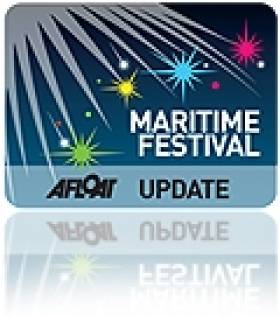Displaying items by tag: BOA70
Mersey River Festival
#MaritimeFestival – Following the recent 70th anniversary of the Battle of the Atlantic, there is an exhibition of the historic event which will form as part of the Mersey River Festival which starts this weekend of 7 - 9 June.
Around half a dozen Tall Ships will grace the River as Liverpool becomes one of the host ports for the Irish Sea Fleet - Maritime Tour 2013.
There will many free events and among the festival programme there will be curator talks, demonstrations and music and dance performances along waterfront venues, as well as plenty of fun and crafts for youngsters.
Find out more about Merseyside Maritime Museum's collections and displays, including rarely seen photographs and drawings and the Battle of the Atlantic online feature. For further details visit this link.
#BattleofAtlantic – The Mersey will yet again be witness in marking another historic occasion tomorrow as the Battle of The Atlantic (on it 70th anniversary) is to be commemorated for the final time in the UK, writes Jehan Ashmore.
A unique opportunity to take part in the final ceremony is by taking a farewell cruise, as naval vessels from countries throughout Europe, Russia, US and Canada are to depart Liverpool. The event has also been commemorated in London and Derry-Londonderry.
The international flotilla which has spent the last few days in Liverpool represent both sides of the conflict which ran the entire length of the Second World War, from 1939 to 1945. The Battle of the Atlantic was pivotal to the success of the allied side, though the loss of life was horrific on both sides as highlighted on the Royal Navy BOA70 commemorative website.
Among the commemorative naval flotilla is HMS Edinburgh (D97) the last Type 42 destroyer in the Royal Navy fleet which is to decommission in Portsmouth in early June. It is apt her visit to Merseyside as she was launched in 1983 across the river on the Wirral Peninsula at the Cammell Laird shipyard.

























































